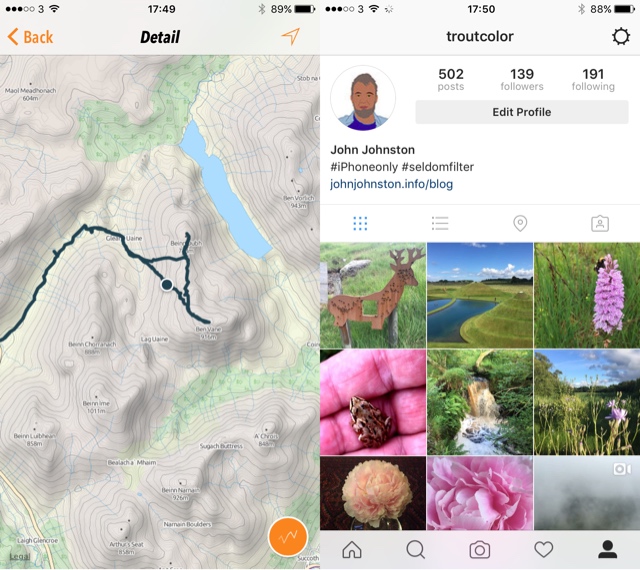I am enjoying reading The Importance of Working ‘Open’ in Education from @dajbelshaw except for the mullet analogy, some of us lived through the 80s.
Category Archives: enviable stuff
I like Instagram but..

I’ve seen this linked a few times recently, finally clicked.
– […] we may keep, use and share your personal information with companies connected with Instagram. This information includes your name, email address, school, where you live, pictures, phone number, your likes and dislikes, where you go, who your friends are, how often you use Instagram, and any other personal information we find such as your birthday or who you are chatting with, including in private messages (DMs).
I’ll be sharing this with my pupils soon.
Vote with your light switch
Intervision, the 70s Soviet answer to the Eurovision Song Contest, was judge by electricity grid voting: “those watching at home had to turn their lights on when they liked a song and off when they didn’t, with data from the electricity network then being used to allocate points.” [Nick Heady] (Fluxx have been working with National Grid on several projects this year)
Just one of 52 things I learned in 2016 – Fluxx Studio Notes – Medium found via kottke
Digital Curiosity
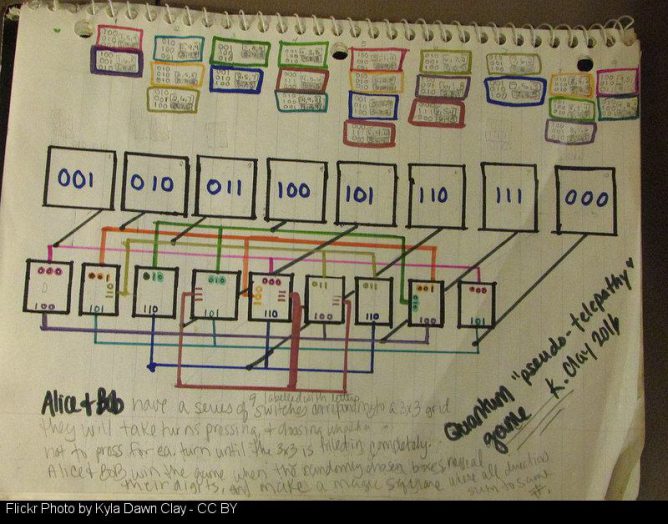
maybe, in concert with an emphasis on making and collaborating and bug reporting and embracing other values of the open web, individuals can help reorient the cultural attitude toward technology away from entanglement and back to a place of enlightenment.
The Age of Entanglement – The Atlantic
Interesting Article. More grist for the ‘why we need to teach digital literacy and curiosity’ mill via @livedtime
Featured image Qsquare quantum pseudo-telepathy from flickr
Creative Commons — Attribution 2.0 Generic — CC BY 2.0
Software Choices
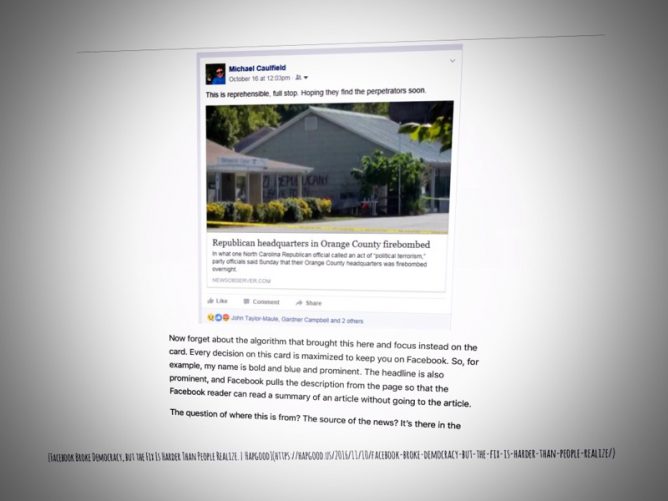
Now forget about the algorithm that brought this here and focus instead on the card. Every decision on this card is maximized to keep you on Facebook. So, for example, my name is bold and blue and prominent. The headline is also prominent, and Facebook pulls the description from the page so that the Facebook reader can read a summary of an article without going to the article.
Facebook Broke Democracy, but the Fix Is Harder Than People Realize. | Hapgood
A really interesting post lots to think about. Unlike Facebook I’d encourage you to read it
I’ve been wondering about what software choices do to us, and our thinking. These sort of considerations are missing from the from the conversation among technology enthusiasts in school education(or I’ve missed them).
I am not sure I am knowledgeable enough to even start teasing this out. Certainly there seems to be more immediate problems in our digital learning bubble (access and skills for two). But if we make choices for ourself and learners with out even considering the effects and affordances of software design we may end up drifting in the wrong direction.
Bonus link: Only Microsoft Could Make Teams
featured image: screenshot shot somewhat messed about with snapseed.
Be Nice
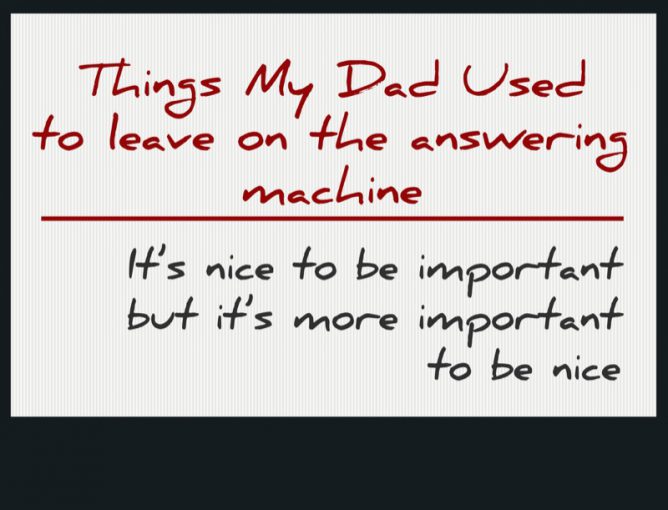
- They comment on other people’s posts.
- They like other people’s posts.
- They share them.
- They…
from: What do nice Internet users do?
Click through to see all 12 points from Dave Winer who should know, having blogged as long than anyone.
From a education PoV good advice for reading and responding to pupils post, but applicable everywhere.
Featured image: Nice to be important by Michelle Grewe on Flickr shared with a Creative Commons — CC0 1.0 Universal license, which was nice.
Recommended Read: ChromeStead
ChromeStead is a really interesting blog from Guy Shearer who is head of IT and data at David Ross Eduction Trust, which I think is a private school.
From the title you would think it was all Google and chromebooks but the schools seems to use a mix of Google Apps, O365 and other products. This makes an enjoyable change from blogs from the PoV of one company supporter or another. The idea of using a mix is very appealing. The school has single sign on for both services, which I believe is possible using RM unify now.
Also from From a Glow perspective there are a lot of interesting posts about O365. Here is an example aside.
(I just wish someone at Microsoft could forget to invite the Sharepoint team to the next planning day so that they can come up with a Classroom competitor that works cleanly and simply like Sway).
ChromeStead: Sway: presentations reimagined, and some general thoughts on O365
Open expression
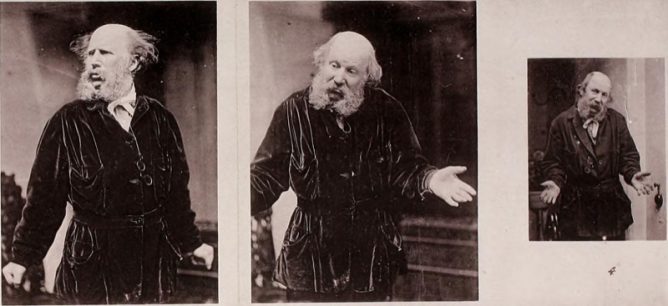
Top / Featured Image: A mashup of many random Monopoly game parts found on The Google (images search). Most were not openly licensed, and I freely admit taking them to remix into something new and commercially unviable. I am so guilty of theft. But at some point we have to ask about the idea of digital ownership of parts of popular culture used in a manner of open expression.
This is the note on the featured image on Alan’s post. As I start to try and get my head round explaining copyright to pupils it is a nice reminder of how complex the whole thing is. Alan, credits carefully all of the images he uses as featured images. Something I’ve started to try and do myself.
When talking pupils I find my self tending to stick closer to the law that I would do myself. I am pretty careful to attribute and use images that are legal, but occasionally will take a gif from a movie, especially in ds106 land.
The featured image in this post is public domain from Image from page 283 of “The expression of the emotions in man and animals” (1872). I though expressions for confusion and puzzlement worked with my feeling about copyright.
The link on the post should point to Alan’s original blog, I am hoping this is a useful way of link blogging, it may cause a bit of confusion if you click the link that will be tweeted.
Can You Share the Link, Please – Read Write Respond
In regards to sharing openly, Doug Belshaw recommend s creating a canonical URL. The intent is to provide a starting point for people to engage with and build upon your work and ideas. This could be one space in which to share everything or you could have a separate link for each project. What matters is that it is public.
Arron Davis on the importance of sharing and linking.
As well as being a great link this is a test post, pulling in content from my pinboard links with FeedWordPress and saving them as a pending post, with the custom format of pinboard. The posts are marked as pending, allowing me to mark up the quote and add some text.
The title of the post should link to Arron’s blog rather than mine. I hope there is a nice wee pinboard icon on the left.
Instagram GO

Dean Groom on Poekemon Go:
Teachers should care about Pokémon Go! – after from the initial network effects (craze) as it is a good way for kids to develop socially. It isn’t designed for education and certainly presents the all too common accessibility issues of commercial games – but THIS game leads you to start thinking about why games, play and learning are important – and how they can be connected with helping children deal with saturated media cultures – Great!
from: Should teachers care about Pokémon Go? | Playable
There is a lot more to think about in that post.
As usual with games, my mind wander and my eyes glaze, I’ve never caught the game bug (although I am interested when I read something like the above).
My first though was it is a wee bit like golf, a good walk spoiled. I am now wondering if some of my own behaviour fits the pattern.
- I wander about outside, searching, looking at the map on my phone
- I capture images
- Share and store online, socially, flickr, instagram.
Featured image my own, IMG_5868 | John Johnston | Flickr CC-BY, sort of hunting idea. The kind of Pokemon I look for.

